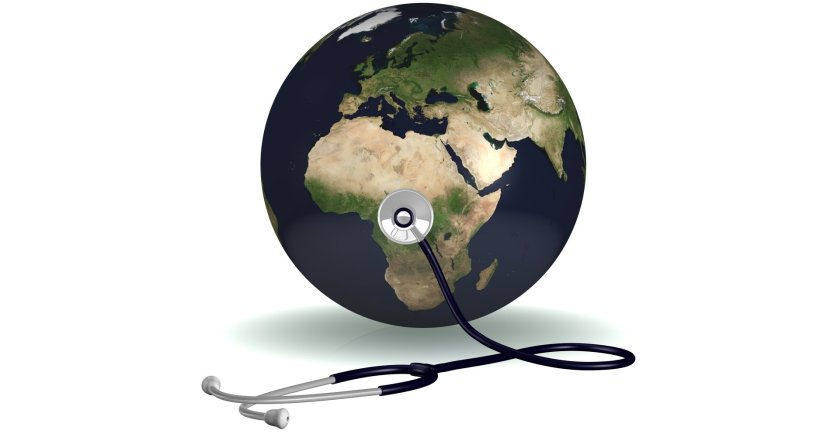
Image source: Adobe Stock/Frog 974
Interview • Global warming awareness
Showing health implications of climate change is best way to reach public
John Kotcher, research assistant professor at George Mason University’s Center for Climate Change Communication, says that emphasizing the health implications of climate change is one of best ways to engage the public to fight for better policies. Kotcher recently spoke about how to communicate about climate change:
What is climate change, and what are the ways it is already affecting our lives?
Kotcher: 'Simply put, climate change refers to long-term changes in temperature, precipitation, and associated weather patterns. These changes can occur naturally, but since the 1800s, human activities have been the primary influence on climate change mainly through the burning of fossil fuels like coal, oil, and natural gas. Climate change is already affecting us in a variety of different ways. For example, it's increasing the frequency and severity of extreme weather events such as major storms, floods, and droughts. It's also leading to greater humidity and longer, hotter and more frequent heat waves. Climate change also affects air quality by increasing smog, smoke from more wildfires, pollen, and mold from higher humidity and flooding.'
Recommended article

Article • Antimicrobial resistance development
AMR and climate change: a worrying dual threat to global health
Climate change and antimicrobial resistance (AMR) are forming an alarming alliance: Global warming creates new breeding grounds for resistant bacteria. A serious and very real threat to public health – but not quite the doomsday scenario some might make it out to be, says Prof Sabiha Essack from the University of KwaZulu-Natal in Durban, South Africa.
What are the public health implications of climate change?
'Increases in extreme heat can lead to more heat-related illness and death from heat stroke and dehydration. Poor air quality can cause more lung infections, asthma and allergy attacks, bronchitis, and deaths. Rising temperatures can also increase the geographic range of disease-carrying insects and animals, resulting in faster and wider spread of diseases like Zika virus. Rising temperatures and extreme weather conditions make it easier for food and water to become contaminated by bacteria, viruses, parasites, and other toxins.'
How can we effectively engage the public to respond to climate change?

Image source: George Mason University
'I think step number one is to recognize that the majority of Americans are already worried about climate change and want to see more done to address it. For example, we find that people who are alarmed about climate change and strongly support action outnumber those who are dismissive of it and oppose action by more than 3 to 1. There are many different ways to talk about the issue, but perhaps not surprisingly a promising one that we've identified is to highlight the public health implications.
'It's also important to have the right messengers who can speak to this issue in a credible way that resonates with a variety of audiences. Medical professionals are highly trusted generally speaking, but in particular Republicans tend to rate their primary care doctor as one of the sources they most trust when it comes to climate change. At the Center for Climate Change Communication, we have a program called the Medical Society Consortium on Climate Change and Health to help train and support health professionals in voicing their concerns about climate change. When it comes to conservatives, it's also important for them to hear about issue from other conservatives. Our center has another program called RepublicEn to help foster the community of conservatives who care about climate change and speak up about the issue.'
Source: George Mason University
10.07.2022





